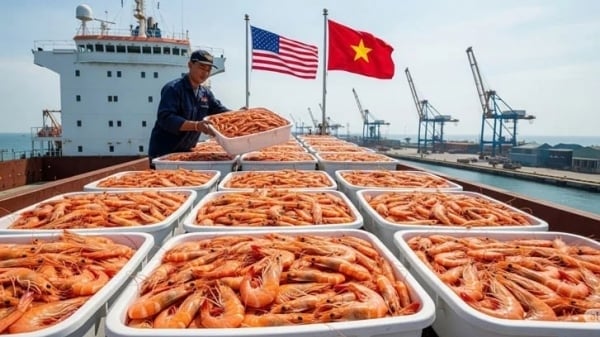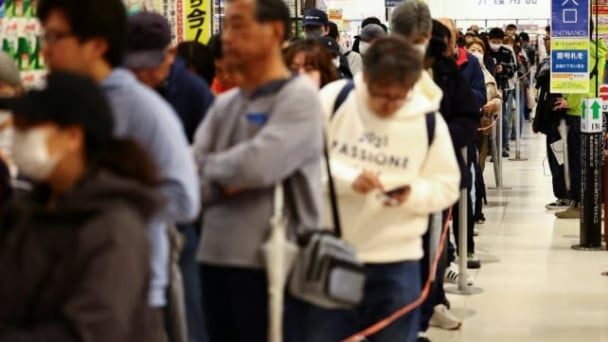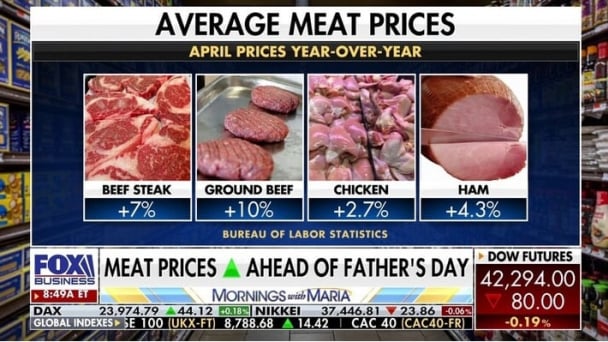June 14, 2025 | 05:46 GMT +7
June 14, 2025 | 05:46 GMT +7
Hotline: 0913.378.918
June 14, 2025 | 05:46 GMT +7
Hotline: 0913.378.918

Spinach is one of the most favoured vegetables in the Japanese market.
According to the Vietnam SPS Office, this information was shared in Official Letter No. 297/SPS-BNNVN sent to the Plant Protection Department on June 24.
In addition to spinach, Japan has also relaxed the maximum residue levels (MRL) for Benthiavalicarb-isopropyl in various herbs (excluding watercress, chives, parsley stems and leaves, and celery stems and leaves). Benthiavalicarb-isopropyl is an active ingredient in fungicides used to prevent and treat downy mildew and mould.
Spinach, also known as Bina, is a herbaceous plant belonging to the amaranth family, resembling Malabar spinach in appearance. This vegetable is highly popular in Japan, as it can be consumed raw, made into juice, or used in salads.
According to Japan's notification, the country has decreased the MRL for spinach but increased it for other vegetables. Specifically, the MRL for green onions (including leeks) has been reduced from 0.7 to 0.5 ppm; for eggplants and other solanaceous vegetables (excluding tomatoes and bell peppers) from 2 to 1 ppm; and for lemons and limes from 1 to 0.7 ppm.
Apart from Benthiavalicarb-isopropyl, Japan has also adjusted the MRL for two other active ingredients: Isopyrazam and Hexaconazole. These substances are also found in pesticides that help prevent and treat fungal diseases in crops.
For Isopyrazam, Japan increased the MRL for the following products: solanaceous vegetables (excluding tomatoes, bell peppers, and eggplants) from 0.09 to 1 ppm; peaches from 5 to 6 ppm; and nectarines from 0 to 6 ppm.
For Hexaconazole, Japan increased the MRL from 0 to 0.2 ppm for solanaceous vegetables (excluding tomatoes, bell peppers, and eggplants). For peaches, the initial proposed MRL is 0.7 ppm.
Adjusting MRLs for chemicals in exported agricultural products is a regular task undertaken by importing countries to ensure consumer health and adhere to commitments to transparency and international standards.
The Vietnam SPS Office advises businesses and farmers to promptly stay informed, and coordinate with management agencies, technical departments, and professionals to review, inspect, and organize production to meet all import requirements.
Translated by Hoang Duy

(VAN) Noting risks, report examines impacts of avian influenza, changing trade patterns since 2022, fish fraud, and shipping industry’s net-zero goals.

(VAN) Mr. Tran Quang Bao, General Director of the Forestry and Forest Protection Department, met and worked with the International Wood Products Association to promote cooperation in the field of timber trade.

(VAN) China's outbound shipments of rare earths in May jumped 23% on the month to their highest in a year, though Beijing's export curbs on some of the critical minerals halted some overseas sales.

(VAN) To sustain capital flow, administrative reform alone is not enough; what farmers truly need is an ecosystem where both government and businesses grow together in support.

(VAN) Vietnam and the United States are proactively working together, each in their own way, to ensure that every container of agricultural goods carries not just products, but also long-term trust and value.

(VAN) Stores have started selling rice from the government’s stockpile to feed demand for the staple.

(VAN) Omaha Steaks CEO says rebuilding cattle herds will take about a year to ease price pressures.